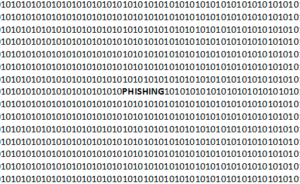Tuesday, February 10, 2015
A recent study says that people are more mindful of online safety issues than what experts had previously believed. An article on phys.org says that Nitesh Saxena, PhD, wanted to know what goes on in users’ brains when they come upon malicious websites or malware warnings.
 Saxena points out that past studies indicated that users’ minds are pretty much blank when it comes to malware signs. Saxena and colleagues used brain imaging (functional MRI) for their study.
Saxena points out that past studies indicated that users’ minds are pretty much blank when it comes to malware signs. Saxena and colleagues used brain imaging (functional MRI) for their study.
Study subjects were asked to tell the authentic login pages of popular websites from phony replications. A second task for them was to differentiate between harmless pop-ups while they read some news articles and pop-ups with malware warnings.
The fMRI showed brain activity as it corresponded to the users’ online activity: attention, making decisions, solving problems. The images lit up for both tasks, but of course, fMRI can’t tell if the user is making the right decision.
That aside, the results were that the users were accurate 89 percent of the time with the malware warning task. When users were met with malware warnings, the language comprehension area of the brain lit up. Saxena states in the phys.org article, “Warnings trigger some sort of thought process in people’s brains that there is something unusual going on.”
The accuracy rate of telling an authentic website from a phony one was just 60 percent. Saxena believes this might be because users don’t know what to look for. For instance, they don’t know to look at the URL, which can give away the phoniness.
This study also had the participants complete a personality evaluation to measure impulsiveness. The fMRI images revealed differences based on impulsivity. Saxena says there was a “negative correlation” between brain activity and impulsive behavior. The impulsive user is prone to hastily clicking “yes” to proceed, when a malware warning pops up.
There was less brain activity in the key cerebral areas of decision-making in the users who had greater degrees of impulsivity.
This study has potential applications for the improved design of malware warning systems. These results can also assist company managers by identifying impulsive workers who need stronger online security training.
Robert Siciliano is an identity theft expert to BestIDTheftCompanys.com discussing identity theft prevention.
About the Author
ROBERT SICILIANO, CEO of IDTheftSecurity.com is fiercely committed to informing, educating, and empowering Americans so they can be protected from violence and crime in the physical and virtual worlds. His "tell it like it is" style is sought after by major media outlets, executives in the C-Suite of leading corporations, meeting planners, and community leaders to get the straight talk they need to stay safe in a world in which physical and virtual crime is commonplace. Siciliano is accessible, real, professional, and ready to weigh in and comment at a moment's notice on breaking news.
Similar Posts
- Malware and Phishing Warnings in Chrome Browser to be changed by Google
Google normally displays a malware and phishing warning in the Chrome browser. There are plans, though, to alter the display. Currently it’s a white warning against a red background. The new display will be an entirely red page, with a big X at the display’s top. These warnings tell the user that the site they’re - The Role of Antivirus Software
The purpose of antivirus (AV) software is to detect, neutralize or eradicate malware (malicious software). AV software not only will identify and destroy the computer virus, but it’s also designed to fight off other kinds of threats such as phishing attacks, worms, Trojan horses, rootkits and more. How does AV software work? It will first scan (either on - Google Adds Security to Search
The Internet can be a dangerous neighborhood, and safety precautions are a necessity. . IBM Internet Security Systems blocked 5,000 SQL injections every day in the first two quarters of 2008. By midyear, the number had grown to 25,000 a day. By late fall, attacks climbed to 450,000 daily. The US government servers and sites - What is scareware?
When it comes to making us fall for their scams, cybercriminals have a number of tricks up their sleeves. One of these tricks is to scare us into thinking that our computers or smartphones have become infected with malware to get us to purchase a fake application. The programs and unethical advertising practices hackers use to frighten - Celebrities Are Lures For Scammers
“Just Google it.” You’ve probably heard this phrase a thousand times before, and for good reason—search is one of the top activities we do online[1]. But while you are searching online for information and content, keep in mind that scammers are also searching for victims. Scammers have been very productive in creating fake or infected websites,